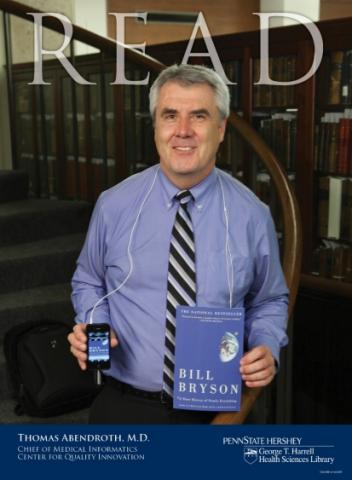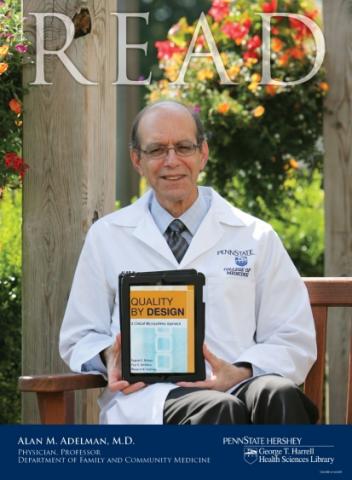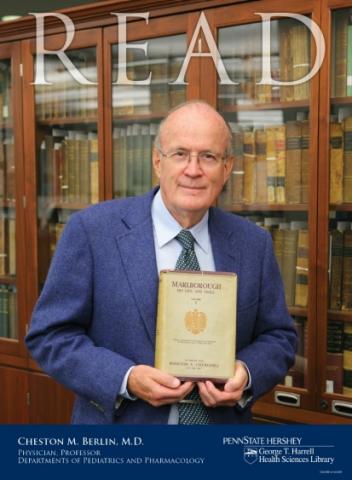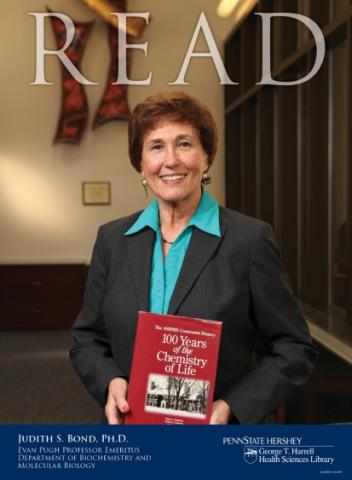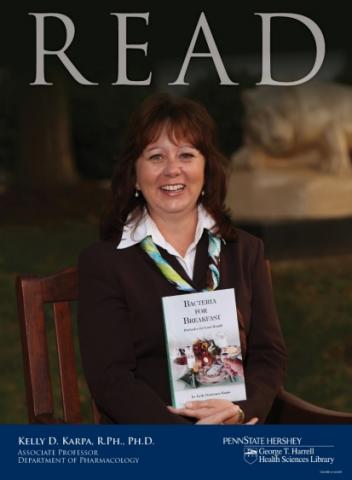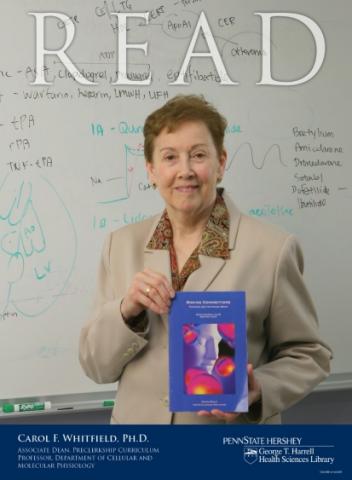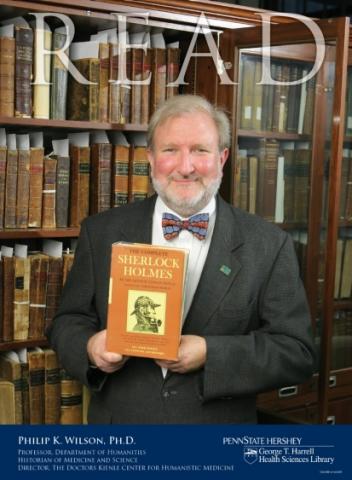Thomas Abendroth, M.D.
Chief Of Medical Informatics Center For Quality Innovation
A Short History of Nearly Everything By Bill Bryson
This accessible, humorous account of human and scientific evolution retells grand historic events with incredible wit. It engages and informs, providing context and perspective for our own modest accomplishments and aspirations. Though my parents and siblings were teachers, I am a painfully slow reader. Recorded books have enriched my life as written media never would. I listen to books every day as I commute, work around the house, and drift off to sleep at night. From murder mysteries to humorous adventures, recorded books broaden my world and provide diversion from the urgencies of the moment. They take me to otherwise inaccessible places and challenge my parochial biases. Plus, they’re fun.
Alan M. Adelman, M.D.
Physician, Professor
Department Of Family And Community Medicine
The iPad
Rather than a specific book I chose an iPad. I enjoy reading on a wide variety of topics – science fiction, detective novels, bicycling, and medical books and journals. This electronic device contains my books, magazines, medical journals and even comic books. It represents the way I now read and access leisure and professional readings. It is portable and allows me to access whatever I want from wherever I want. It is my window to all of the wonderful electronic resources that our Harrell Health Science Library has to offer.
Cheston M. Berlin, M.D.
Physician, Professor
Departments Of Pediatrics And Pharmacology
Marlborough: His Life and Times By Winston S. Churchill
The book I have chosen is: Marlborough: His Life and Times by Winston S. Churchill. This is a biography of John Churchill, Duke of Marlborough, written by his descendent Winston Churchill. It is a work of magisterial greatness, illustrating meticulous research and the gorgeous use of the English language for which Winston Churchill was so well known. The biography covers not only the military success of Marlborough (he never lost a battle) but is a superb description of the political , economic, and literary activity of the Age of Anne (Restoration) in England. The magnificent cadences on nearly every page of this work predict the impact of Winston Churchill's speeches during World War II.
Judith S. Bond, Ph.D.
Evan Pugh Professor Emeritus
Department Of Biochemistry And Molecular Biology
100 Years of the Chemistry of Life By The ASMBM Centennial History
This book celebrates the centennial of a community of scientists who came together to form what is now known as the American Society for Biochemistry and Molecular Biology (ASBMB). It documents how the Society grew from 81 scientists in 1906 to a diverse group of ~12,000 scientists worldwide today who study, teach and advance our knowledge of the molecular basis of life. The science is more exciting than ever, and the book documents how the Society, its publications and meetings, and the people behind the scenes laid the foundation for the discipline, which defines the language of the life sciences, and is central to a host of other disciplines as well as in developing applications in medicine, agriculture, and industry.
Kelly D. Karpa, R.PH., Ph.D.
Associate Professor Department Of Pharmacology
Bacteria for Breakfast By Kelly Karpa
The reasons that I love Bacteria for Breakfast are because of everything that the book represents to me:
It represents a mother’s love for her child. When conventional medicine failed, the book characterizes a mother’s quest to find a cure for a sick child.
The book represents a cure coming from an unlikely place – that of alternative medicine.
The book represents a real life situation in which the volumes of knowledge gained during a tragic illness (and miraculous recovery) were compiled into a book that could help others.
The book represents hope . . . and sometimes, in treatment of medical illness, hope is what the sick and their caregivers need most.
Finally, the book has been able to be a blessing and literally a life-saver for many other people who have suffered from the same illness.
The book represents a labor of love for my son.
Carol F. Whitfield, Ph.D.
Associate Dean, Preclerkship Curriculum Professor
Department Of Cellular And Molecular Physiology
Teaching and the Human Brain, Making Connections By Renate Nummela Caine and Geoffry Caine
My favorite book is one that had an extreme influence on my movement into the arena of medical education. The book is Teaching and the Human Brain, Making Connections by Renate Nummela and Geoffrey Caine.
This book convincingly turned around my conception of teaching and learning, and had a great influence in attracting me to curriculum development and to the value of problem-based learning for medical education. As my career veered into medical education and administration, the lessons I learned from this book were put to use constantly, especially in the development of our original Problem-Based Learning Track, and the eventual combining of traditional and problem based learning tracks into our current hybrid concept, and further into our newly proposed curriculum integrating clinical and basic science throughout all four years of medical education. I constantly appreciate the fact that I found this book at a crucial time in the development of our medical curriculum at PSUCOM.
Philip K. Wilson, Ph.D.
Professor, Department Of Humanities Historian Of Medicine And Science Director
Doctors Kienle Center For Humanistic Medicine
The Complete Sherlock Holmes By Sir Arthur Conan Doyle
As to why this book has special meaning, let me offer you the following:
Keen observation of detail – astute analytical reasoning – flashes of brilliant detection; all of these qualities provide the platform for successful detective work, medical practice, and lifelong learning. Sir Arthur Conan Doyle produced an iconic master of these qualities in his creation, Sherlock Holmes. Yet Conan Doyle’s adventures also remind us that his mere “cold, calculating machine” Holmes requires a regular dose of Kienle Center compassion through the ever-present Dr. John Watson, whose gentle and humanistic ways complete the package necessary for turning clues to cures.
